Energy
SK Energy, Korea’s first refiner to export sustainable aviation fuel to Europe
SAF is emerging as a next-generation eco-friendly energy source as many countries impose stricter emissions rules
By Jan 05, 2025 (Gmt+09:00)
2
Min read
Most Read
LG Chem to sell water filter business to Glenwood PE for $692 million


KT&G eyes overseas M&A after rejecting activist fund's offer


Kyobo Life poised to buy Japan’s SBI Group-owned savings bank


StockX in merger talks with Naver’s online reseller Kream


Meritz backs half of ex-manager’s $210 mn hedge fund


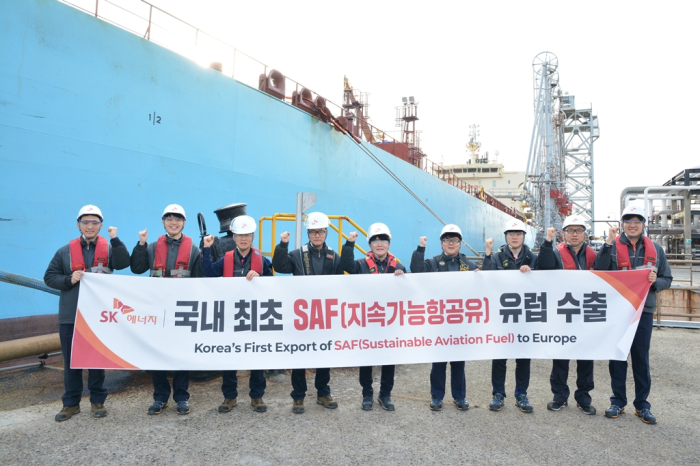
SK Energy Co., South Korea’s largest oil refiner, said on Sunday it has shipped its first batch of sustainable aviation fuel (SAF) to Europe, which imposes some of the strictest carbon neutrality regulations in the aviation industry.
With the shipment, SK Energy, a unit of the country’s top energy company and battery maker SK Innovation Co., has become Korea’s first oil refiner to export SAF to Europe.
SAF, produced from bio-based feedstock such as waste cooking oil and palm oil instead of fossil fuels, is generating interest as a next-generation eco-friendly energy source as it significantly reduces carbon emissions.
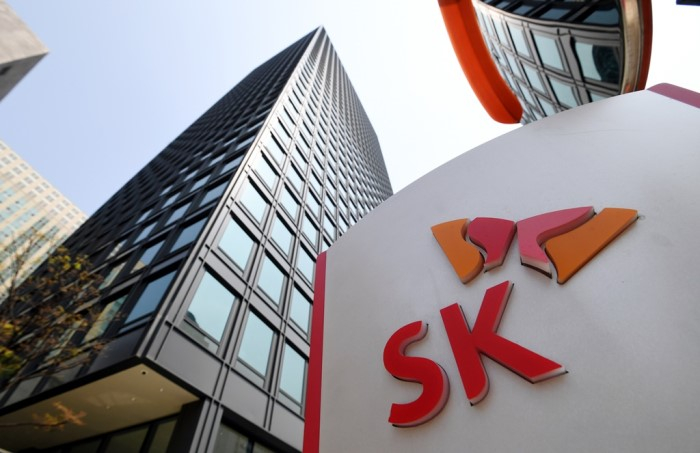
Amid ongoing global decarbonization initiatives, a growing number of countries are mandating the use of SAF blends, pointing to the SAF market's continued growth.
The European Union will require at least 2% SAF blending in aviation fuel starting in January, while Singapore plans to mandate a minimum of 1% SAF blending starting in 2026.
Korea is preparing to introduce SAF blending requirements in 2027.
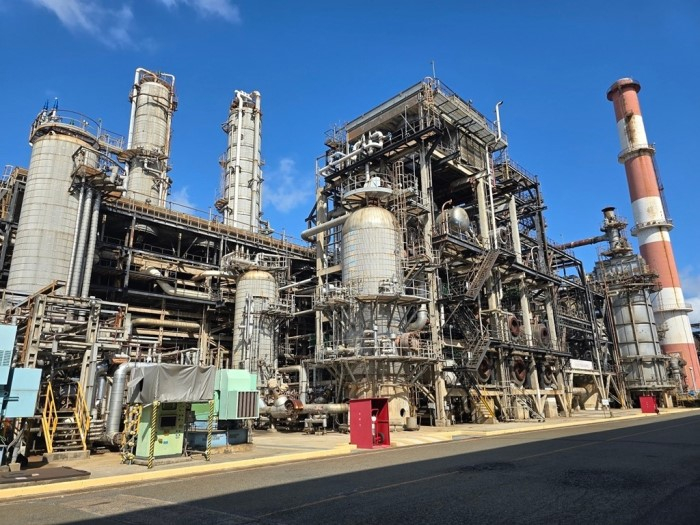
CO-PROCESSING METHOD
In September 2024, SK Energy installed a co-processing production line and began commercial production of SAF.
Co-processing connects separate bio-raw material supply pipes to existing petroleum product lines to produce SAF and other low-carbon products such as bio-naphtha.
SAF mass production is expected to allow SK Energy to complete an entire SAF value chain, which includes raw material procurements, manufacturing and sales.
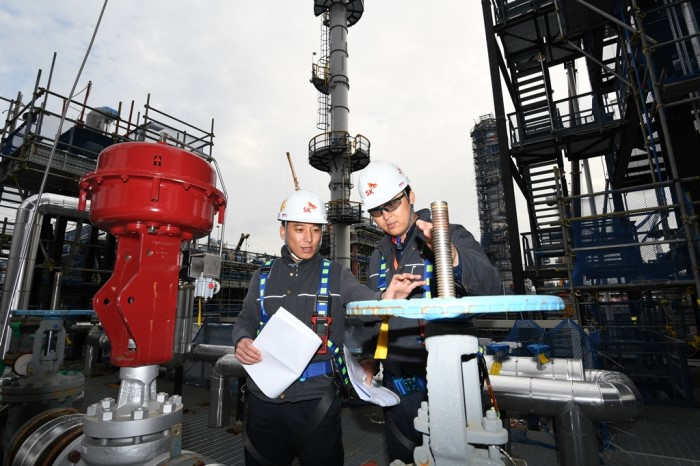
SK Innovation’s subsidiary SK On Trading International is engaged in the waste-based raw material procurement business while SK Energy produces and sells SAF.
SOARING SAF DEMAND
According to the International Air Transport Association (IATA), global demand for SAF is forecast to grow to 18.4 million tons by 2030 from 240,000 tons in 2022.
SK Energy is considering building a dedicated SAF production facility if demand is strong enough.
The company plans to supply SAF to Korean Air Lines Co. this year.
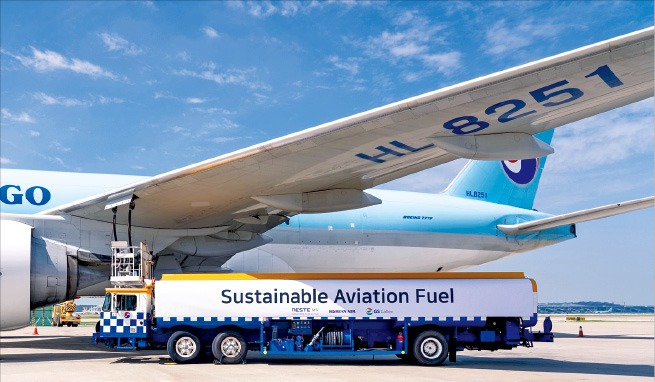
Korean Air, the country’s top airliner, began using SAF for international flights, starting with Korea-Japan routes in August.
“We plan to continue expanding SAF production and exports while closely monitoring domestic and international SAF policy changes and market demand situations,” said Lee Chun-gil, head of SK Energy's Ulsan CLX.
Write to In-Soo Nam at isnam@hankyung.com
Joel Levin edited this article.
More to Read
-
 Construction & PlanningSamsung E&A enters SAF EPC market with $955 mn Malaysian bioplant deal
Construction & PlanningSamsung E&A enters SAF EPC market with $955 mn Malaysian bioplant dealDec 11, 2024 (Gmt+09:00)
2 Min read -
 EnergyKorea's SK Energy to start commercial operations of SAF production line
EnergyKorea's SK Energy to start commercial operations of SAF production lineSep 11, 2024 (Gmt+09:00)
2 Min read -

-
 Construction & PlanningSK Energy, PTC Korea team up for smart plant construction business
Construction & PlanningSK Energy, PTC Korea team up for smart plant construction businessFeb 21, 2024 (Gmt+09:00)
1 Min read -
 Corporate restructuringSK Energy to spin off tank terminal business as new logistics firm
Corporate restructuringSK Energy to spin off tank terminal business as new logistics firmNov 13, 2023 (Gmt+09:00)
1 Min read
Comment 0
LOG IN


